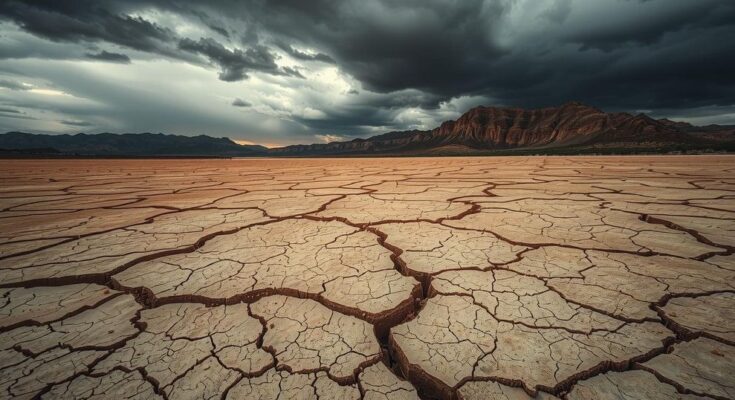Qatar’s Prime Minister has warned that an attack on Iran’s nuclear facilities could contaminate the Gulf’s waters, putting regional countries at risk of water shortages. He emphasized Qatar’s reliance on desalination and the need for diplomatic solutions instead of military action, stating that Tehran is open to improving relations in the region.
Qatar’s Prime Minister, Sheikh Mohammed bin Abdulrahman bin Jassim Al-Thani, expressed dire concerns regarding the potential repercussions of an attack on Iran’s nuclear facilities located on the Gulf coast. In a recent interview with United States media figure Tucker Carlson, he indicated that such an event could lead to severe water scarcity throughout the region.
During the dialogue, Sheikh Mohammed stated that consequences of such an attack had been simulated, predicting that the sea would become entirely contaminated and that Qatar could exhaust its water supply within three days. He acknowledged improvements in water reservoir capacities but emphasized that the risk to regional stability persisted.
Highlighting the existential implications, he remarked, “No water, no fish, nothing… no life.” This statement came alongside remarks from former President Donald Trump, who mentioned a preference for a peace deal with Iran but also noted military options could be considered. Qatar, situated 190 kilometers south of Iran, relies predominantly on desalination, a critical method of obtaining potable water.
Iran’s nuclear power facility in Bushehr is operational on the Gulf coast, while its uranium enrichment efforts are conducted deeper inland. Sheikh Mohammed raised concerns about both military and security ramifications surrounding this issue and reiterated Qatar’s stance against military action while advocating for diplomatic solutions, asserting, “They are willing to get to a level that creates comforts for everybody.”
Furthermore, he noted that Tehran was eager to improve its regional relationships, highlighting that peace and dialogue were crucial. Since the 2015 deal aimed at curtailing Iran’s nuclear advancements, Western nations have accused Iran of continuing its nuclear weapon pursuits, a claim Iran categorically denies. After the United States’ withdrawal from the agreement in 2018, tensions have fluctuated, warranting ongoing discussions about peace and security in the region.
In summary, Qatar’s Prime Minister underscores the critical risks associated with any military intervention targeting Iran’s nuclear facilities, particularly the catastrophic impact it could have on the region’s water security. The call for diplomatic engagement remains a priority for Qatar, reflecting broader concerns about stability and safety in the Gulf. The interplay of military considerations against the backdrop of urgent humanitarian needs epitomizes the complex nature of regional politics.
Original Source: www.france24.com




